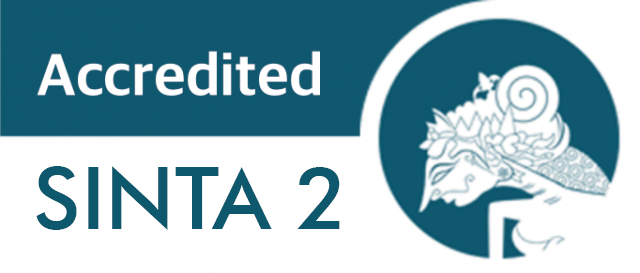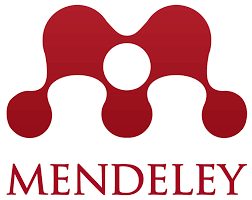The Influence of E-Learning Model Web Enhanced Course to Conceptual Understanding and Self Regulated Learning in Mathematics for Elementary School Students
DOI:
https://doi.org/10.15408/tjems.v4i1.5536Keywords:
conceptual understanding, self-regulated learning, e-learning, pemahaman konseptual, belajar mandiriAbstract
Abstract
This study is aimed to analyze students’ conceptual understanding and their self-regulated learning in mathematics between students who are treated using the e-learning model web enhanced course and those who are taught with the power point and to find out the appropriate e-learning design in learning math for elementary school. This study was conducted through quasi-experiment with a pre test-post test control group design. The population of this study is all of the 5thgrade students of private Islamic Elementary School (MI) in Jakarta, while the sample is taken from two classes of the population. The instruments used in this study are the essay, questionnaire, and observation sheet. The results showed that 1) students’ conceptual understanding of mathematics using e-learning model web enhanced course is better than students who get the learning using power point, 2) students’ self-regulated learning treated using e-learning model web enhanced course is better than students’ who get the learning using power point, 3) e-learning design that fits in the learning of mathematics in primary schools is e-learning design, incorporating text, images, and animations as well as providing convenience for group discussion. Based on these results it can be concluded that the e-learning web-enhanced model affects the conceptual understanding of mathematics and self-regulated learning of elementary school students.
Abstrak
Studi ini bertujuan untuk menganalisa pemahaman konseptual siswa dan pembelajaran mandiri dalam matematika antara siswa yang diperlakukan menggunakan pembelajaran berbasis internet dan siswa yang diajarkan menggunakan power point dan untuk menemukan bentuk pembelajaran berbasis internet yang tepat dalam pembelajaran matematika untuk sekolah dasar. Studi ini diadakan melalui quasi-experiment dengan bentuk pre test dan post test. Populasi studi ini adalah seluruh siswa kelas 5 MI di Jakarta, sedangkan sampel diambil dari dua kelas dari keseluruhan populasi. Instrument yang digunakan dalam studi ini adalah essay, questionnaire, dan lembar observasi. Hasil dari studi ini menunjukkan bahwa 1) pemahaman konseptual siswa dalam matematika dengan menggunakan pembelajaran berbasis internet lebih baik dari pada siswa yang belajar menggunakan power point, 2) pembelajaran mandiri siswa yang menggunakan model pembelajaran berbasis internet lebih baik dari pada siswa yang belajar menggunakan power point, 3) bentuk pembelajaran berbasis internet yang cocok dalam belajar matematika untuk sekolah dasar adalah bentuk pembelajaran berbasis internet, memasukan teks, gambar, dan animasi senyaman mungkin untuk diskusi kelompok. Berdasarkan hasil di atas dapat disimpulkan bahwa model pembelajaran berbasis internet mempengaruhi pemahaman konseptual pelajaran matematika dan pembelajaran mandiri siswa sekolah dasar.
How to Cite : Arifin, F. Herman, T. (2017). The Influence of E-Learning Model Web Enhanced Course to Conceptual Understanding and Self Regulated Learning in Mathematics for Elementary School Students. TARBIYA: Journal of Education in Muslim Society, 4(1), 45-52. doi:10.15408/tjems.v4i1.5536.
Permalink/DOI: http://dx.doi.org/10.15408/tjems.v4i1.5536
References
A. Seda Yucel. (2006). E-Learning Approach In Teacher Training. Turkish Online Journal of Distance Education-TOJDE July 2006 ISSN 1302-6488 Volume: 7 Number: 4 Article: 11, pp. 1-8.
Bains, M, et.al. (2010). Effectiveness and Acceptability of Face-to-Face Blended and e-learning: a Randomized Trial of Orthodontic Undergraduates. European Journal of Dental Education. ISSN1396-5883, pp. 110-117.
Bawaneh, S.S. (2011). The Effects of Blended Learning Approach On Students Performance: Evidence From A Computerized Accounting Course. Interdisciplinary Journal of Research in Business Vol. 1, Issue. 4, April 2011, pp. 43–50.
Castle, SR. & McGuire, CJ. (2010). An analysis of student self assessment of online, blended, and face to face learning environments: implication for sustainable education delivery. (Versi elektronik). Journal of International Education Studies., vol 3 no 3, 36.
Darr, Charles and Jonathan Fisher. (2005). Self-Regulated Learning In Mathematics Classes. [Online]. http://www.nzcer.org.nz/system/files/set2005_2_044.pdf. [2 April 2017]
Ibrahim, Doni Septumarsa dan Siti Partini Suardiman. (2014). Pengaruh Penggunaan E-Learning Terhadap Motivasi Dan Prestasi Belajar Matematika Siswa Sd Negeri Tahunan Yogyakarta. Jurnal Prima Edukasia, Volume 2, Nomor 1, hlm 67-79.
Jeffrey, Lynn M, et.al. (2014). Blended Learning: How Teachers Balance the Blend of Online and Classroom Components. Journal of Information Technology Education: Research Volume 13, pp. 121-140.
Albano, Giovannina. (2012). “A Knowledge Skill Competencies e-learning Model in Mathematics”. Universities and Knowledge Society Journal (RUSC). vol. 9, no 1. p. 306-319.
Jusoff, K. & Khodabandelou, R. (2009). Preliminery Study On The Role Of Social Presence In Blended Learning Environment In Higher Education. Journal of International Education Studies., vol 2 no 4, 82.
Khashan, Dr. Khaled Helmi. (2014). Conceptual and Procedural Knowledge of Rational Numbers for Riyadh Elementary School Teachers. Journal of Education and Human Development, 3(4), pp. 181-197.
Kilpatrick, J., Swafford, J., and Findell, B. (2001). Adding it Up: Helping Children Learn Mathematics. Wasington DC: National Academy Press.
M. Zulkifli, et,al. (2016). An Analysis of Information and Communication Technology based Learning Models in School. International Journal of Applied Engineering Research. 11, (23), pp. 11215-11222.
Marzani. (2011). Penerapan E-Learning Berbasis Moodle Untuk Meningkatkan Penguasaan Konsep Dan Keterampilan Berpikir Kritis Siswa Pada Konsep Cahaya Di Smp. (Tesis). Sekolah Pascasarjana, Universitas Pendidikan Indonesia, Bandung.
Mubaraq, L. (2009). Model Pembelajaran Berbasis Web Pada Materi Fluida Dinamis Untuk Meningkatkan Penguasaan Konsep Dan Keterampilan Generic Sains Siswa. Tesis. Bandung: Universitas Pendidikan Indonesia.
National Council of Teachers of Mathematics. (2000). Principles and Standard for School Mathematics. Reston, VA: NCTM.
Ngadiyo. (2007). Pembelajaran E-learning dalam Meningkatkan Mutu Pendidikan. Makalah E-learning/Pelatihan JARDIKNAS 2007.
Noesgaard, Signe Schack and Rikke. (2015). The Effectiveness of E-Learning: An Explorative and Integrative Review of the Definitions, Methodologies and Factors that Promote e-Learning Effectiveness. The Electronic Journal of e-Learning Volume 13 Issue 4 2015, ISSN 1479-4403 278, pp. 278-290.
Rusman. (2012). Belajar dan Pembelajaran Berbasis Komputer: Mengembangkan Profesionalisme Guru Abad 21. Bandung: CV Alfabeta.
Sagala, Syaiful. (2011). Konsep dan Makna Pembelajaran untuk Membantu Memecahkan Problematika Belajar dan Mengajar. Bandung: Alfabeta.
Umoh, Joseph B and Ekemini T. Akpan. (2014). Challenges of Blended E-Learning Tools in Mathematics: Students’ Perspectives University of Uyo. Journal of Education and Learning; Vol. 3, No. 4; 2014. E-ISSN 1927-5269. Published by Canadian Center of Science and Education, pp. 60-70.











